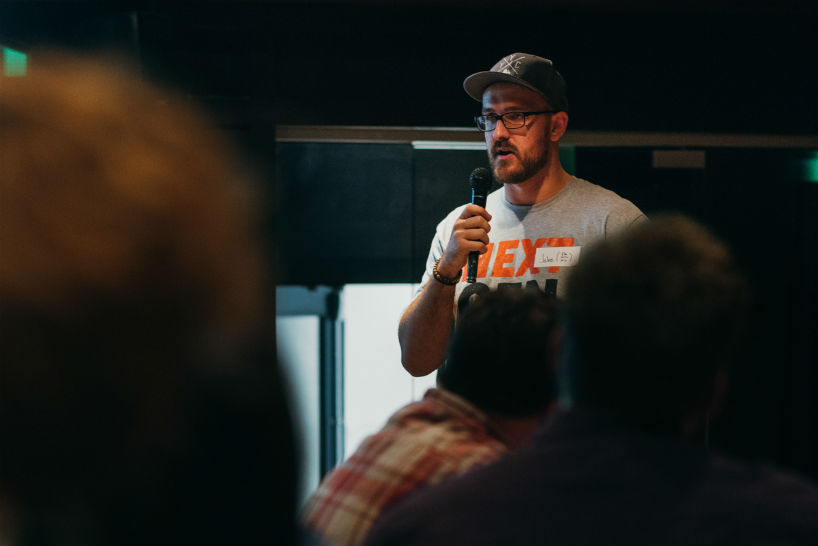Jake Stika is the executive director and co-founder of Next Gen Men, a social enterprise in Calgary and Toronto that teaches boys to be better men.
How? By showing them alternative forms of masculinity and by teaching men in the workplace about the concept of toxic masculinity.
How did Next Gen Men get started?
I’d read a piece in The Walrus called “The Talk” by Rachel Giese. She profiled an organization in Calgary called Wize Guys that’s focused on sexual health for guys. I’d been doing Movember for a few years, and I had this email in my inbox from the Movember Foundation about a competition to find ways to make a difference in men’s health. I called my co-worker Jermal Alleyne, we made a pitch, and made the first-round cut. We added a bit of credibility to the team with Jason Tan de Bibiana, an old acquaintance of mine who had been doing sexual health education in Vancouver and Jamaica. We pitched again, and were chosen as one of the recipients of the $150,000 grant.
On a personal side, Jermal lost his 13-year-old brother to suicide in 2007, and I suffered from depression myself in 2010. We all had experiences with toxic masculinity and how it affected our health, and we wanted to create a platform to effect change.
How do these sessions with the boys tend to go?
They’re not necessarily designed to be academic or pedantic, they’re more goals-based. We talk about things like the portrayal of men and women in the media. We incorporate various activities, like word webs, where we take words that are seen as masculine and feminine and write down the different associations we have with those words. At one session, the youth made these pretty awesome posters and, of their own volition, they asked if they could share them with their peers. We also talk about understanding how to have healthy relationships with your peers, dealing with authority, things like that. And we sometimes incorporate kinaesthetic learning, learning through motion, learning about descriptive words like strong or caring, and then getting the boys to act out what those words mean, and showing them how with the masculine words , like strong, they set their legs apart at shoulder width, for example, postures that involve taking up space, while for the feminine words, like cute, they tuck their arms in and take up less space, making themselves smaller.

Jake Stika, executive director and co-founder of Next Gen Men
What was the response you got when you set up shop?
We piloted the program in two schools, and it went really well. After the first time, we were invited back to the same school, and based on their stamp of approval, we were able to expand to a few other schools in York Region. After a year and a half we had enough data to see the impact we were having. This year we’re poised to have our program in 15 schools, and we have a waiting list for new schools and school boards because our capacity is so limited.
What does toxic masculinity look like in schools?
We chose 12– to 14-year- olds because those are the ages when you see a real rise in violent behaviour, misogyny, homophobia. There’s a lot of group think, like you can’t show emotion, for example. We’re assigned a sex at birth, but from very early on, there’s also gender programming. This is how girls behave, and that is how boys behave. If you look at the mainstream media, what’s presented to you as a model of masculinity to aspire to is either the father figure, the husband, or on the other side of the spectrum, you have the hyper-masculine athlete, a star driving a fast car and making lots of money. There’s not a lot to aspire to if you want to be a stay at home dad, really. We call ourselves a gender transformative program. We put it all on a spectrum and we give the boys space to challenge those norms.
Where do you go from here?
It doesn’t happen overnight’s but if you can disrupt certain ideologies early on, and impart the ability to think critically, that can have lasting effects over a lifetime. We’ve also started another group called Wolf Pack, a monthly space for men to have conversations about things men don’t usually talk about – body image, consent and pleasure, dating and breakups – and that came from our friends just saying, “I wish I had something like that when I was a kid.”
Infolettre
Envoyée tous les jeudis.
Inscrivez-vous.
Suivez l’actualité de l’économie positive et engagée.
Emplois
Trouvez l'emploi idéal.
Événements
Nos prochaines activités.

